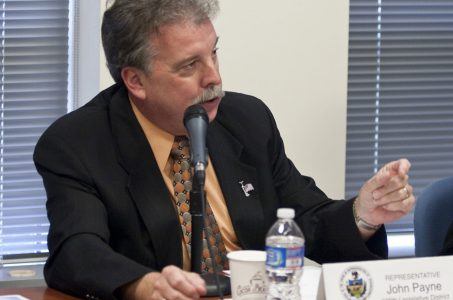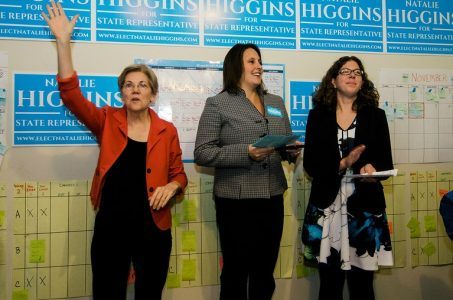Study Finds 10 States Looking at Online Gambling Bills
Posted on: February 7, 2014, 05:30h.
Last updated on: February 5, 2014, 11:22h.

Stories about which states may or may not be interested in pushing for online gambling seem to pop up pretty regularly these days, and it can be difficult to tell which states are serious versus which ones will never come close to regulating poker and casino games on the Internet. But a new report has tried to put some numbers to the movement to bring back online gambling to the United States, and has found that ten states are legitimately considering legalizing or expanding online gambling this year.
Overview of What’s to Come
The study – conducted by Gambling Compliance, which supplies regulatory news, analysis and data for the worldwide gaming industry – looked both at developments in the U.S. market in 2013, and what was expected to take place in 2014. As you likely already know, New Jersey, Nevada and Delaware are the states that currently offer online casino games or poker in some form. New Jersey is now also actively looking to expand their current regulations to allow for companies to offer games to players in other jurisdictions as well.
But that’s far from the only action around the nation when it comes to online gambling this year.
According to the report, California, Colorado, Hawaii, Illinois, Iowa, Louisiana, Massachusetts, Mississippi and Pennsylvania are all considering bills this year that would introduce online gambling to their residents.
“In 2013, ten states considered legislation that would legalize online casino-style gambling, which was a historic high,” said Chris Krafcik, research director for Gambling Compliance. “This year is shaping up to be at least as busy.”
The report suggests a more optimistic view of the prospects for legal passage this year in some key states than various previous experts have anticipated. For instance, in California, many have speculated that the issue will have to wait until 2015 to gain any real traction. But with Native American tribal leaders from two major coalitions working on an accord that would see them push for Internet gaming together, the report suggests that action on a bill could come before an August 31 deadline for this session.
Of course, the study was published before Senator Roderick Wright‘s (D-Inglewood) fall from grace last week, effectively removing one of the Golden State’s most powerful allies in getting at least poker online in California anytime soon.
The study also suggested that while most states would seek intrastate solutions at first, they would be open to interstate compacts in the future.
“Most states are also expected to consider legislation that would initially limit Internet gambling to within state lines, but that would grant regulators power to execute cross-border Internet gambling agreements with other states and foreign nations,” the account stated.
Election Year Makes Federal Outlook Doubtful
At the federal level, however, Gambling Compliance shares the pessimistic view of most analysts when it comes to a national online gambling regulatory bill. They note instead that the fight in Congress seems to be about positioning and lobbying in regards to a potential ban on online gambling, which is being pushed for by a coalition led by Sheldon Adelson.
“It is an election year, which means that virtually all politically controversial subjects, including Internet gambling, will be seen through the risk-averse lens of re-election,” the report said. “Still, behind the scenes, proponents and opponents will continue to jockey for position as Senate leadership continues to weigh up a blanket Internet gambling prohibition amid continued online expansion at the state level.”
That battle lead Gambling Compliance to speculate that this year could see a strong lobbying push, “perhaps the most concerted since 2006,” against online gambling, with Adelson’s Coalition to Stop Internet Gambling facing off against companies like Caesars who are in favor of federal online gambling legalization.
Related News Articles
Bwin.party Confirms GVC Bid
Pennsylvania Online Poker Combined with DFS
Most Popular
This Pizza & Wings Costs $653 at Allegiant VIP Box in Vegas!
Sphere Threat Prompts Dolan to End Oak View Agreement
Fairfax County Officials Say No NoVA Casino in Affluent Northern Virginia
Atlantic City Casinos Experience Haunting October as Gaming Win Falls 8.5%
Most Commented
-
VEGAS MYTHS RE-BUSTED: Casinos Pump in Extra Oxygen
— November 15, 2024 — 4 Comments -
Chukchansi Gold Casino Hit with Protests Against Disenrollment
— October 21, 2024 — 3 Comments















